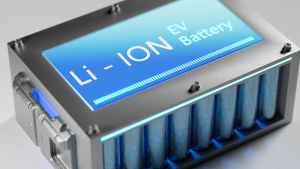Powering the Future: LiFePO4 Batteries in Electric Vehicles

The environmental problems that traditional internal combustion engine cars bring about have a potential remedy in the form of electric vehicles (EVs). The battery technology that drives these cars is at the core of this change. Lithium iron phosphate (LiFePO4) batteries are the leading option among the several battery chemistries available because of their outstanding performance, environmental sustainability, and safety. In this in-depth analysis, we will explore the critical role of LiFePO4 batteries in powering the future of electric vehicles, examining their advantages, challenges, and potential to accelerate the transition towards sustainable transportation.
The Rise of Electric Vehicles:
The growth of electric cars is causing a substantial upheaval in the automobile sector. The fast acceptance of electric vehicles (EVs) has been driven by advancements in battery technology, as well as increased environmental concerns and government attempts to cut greenhouse gas emissions. These cars are a desirable alternative for both customers and policymakers due to their many advantages, which include lower running costs, less reliance on fossil fuels, and a notable decrease in exhaust emissions.
The Importance of Battery Technology:
Central to the success of electric vehicles is the development of high-performance battery technology capable of delivering the range, power, and longevity required for widespread adoption. The favored option for electric vehicle producers is now lithium-ion batteries, which include LiFePO4 batteries, because of its extended cycle life, high energy density, and quick charging speed.
Advantages of LiFePO4 Batteries in Electric Vehicles:
- Safety:
Safety is paramount in electric vehicle battery technology, and LiFePO4 batteries excel in this aspect. Their inherent stability and resistance to thermal runaway make them less prone to overheating and combustion compared to other lithium-ion chemistries, enhancing the overall safety of electric vehicles.
- Longevity:
Compared to conventional lithium-ion batteries, LiFePO4 batteries have a longer cycle life, which makes them ideal for the rigorous needs of electric car applications. LiFePO4 batteries ensure dependable operation for the duration of the vehicle when managed properly, since they can withstand thousands of charge-discharge cycles without experiencing appreciable deterioration.
- Environmental Sustainability:
LiFePO4 batteries are environmentally friendly, as they contain non-toxic and abundant materials. The use of iron phosphate in LiFePO4 batteries reduces reliance on rare and environmentally damaging materials, such as cobalt, while also minimizing the environmental impact associated with battery production and disposal.
- Thermal Stability:
LiFePO4 batteries exhibit excellent thermal stability, allowing them to maintain performance and safety even under extreme temperature conditions. This feature is particularly important in electric vehicles, where batteries are subjected to varying environmental conditions during operation.
Challenges and Considerations:
While LiFePO4 batteries offer numerous advantages for electric vehicles, several challenges and considerations must be addressed:
- Energy Density:
Although LiFePO4 batteries offer sufficient energy density for many electric vehicle applications, they may not match the energy density of other lithium-ion chemistries, such as lithium nickel manganese cobalt oxide (NMC) or lithium nickel cobalt aluminum oxide (NCA). This can impact the range and performance of electric vehicles, especially in long-distance driving scenarios.
- Charging Infrastructure:
The widespread adoption of electric vehicles is contingent upon the availability of robust charging infrastructure. While LiFePO4 batteries support fast charging capabilities, the development of a comprehensive charging network remains essential to address range anxiety and promote consumer confidence in electric vehicles.
- Cost:
The cost of LiFePO4 batteries, while declining in recent years, remains higher than that of conventional lead-acid batteries. This may have an effect on the initial cost of electric cars and prevent their general acceptance, especially in regions where costs are a concern.
- Continuous Innovation:
To remain competitive in the rapidly evolving electric vehicle market, ongoing research and innovation in LiFePO4 battery technology are essential. The efficiency, security, and affordability of LiFePO4 batteries for electric cars may be further improved by developments in materials science, production techniques, and battery management systems.
Future Outlook:
Despite the challenges, the future outlook for LiFePO4 batteries in electric vehicles is promising. As technology continues to evolve and economies of scale drive down costs, LiFePO4 batteries are expected to play an increasingly significant role in powering the next generation of electric vehicles. With their inherent safety, environmental sustainability, and long-term reliability, LiFePO4 batteries are poised to accelerate the transition towards a cleaner, greener, and more sustainable transportation ecosystem.
Conclusion:
LiFePO4 batteries represent a compelling solution for powering the future of electric vehicles, offering a unique combination of safety, longevity, and environmental sustainability. The growing use of LiFePO4-powered electric cars is being fueled by government regulations that are favorable of the industry, even while issues like energy density, cost, and charging infrastructure still exist. With their proven track record and potential for continuous innovation, LiFePO4 batteries are poised to revolutionize the automotive industry and pave the way for a sustainable transportation future.






